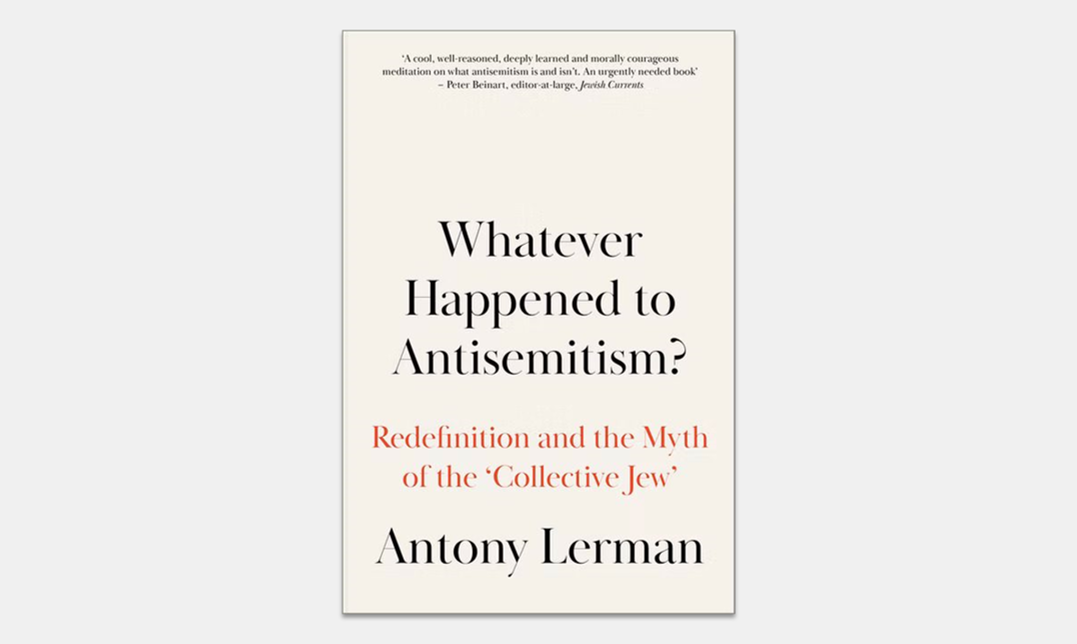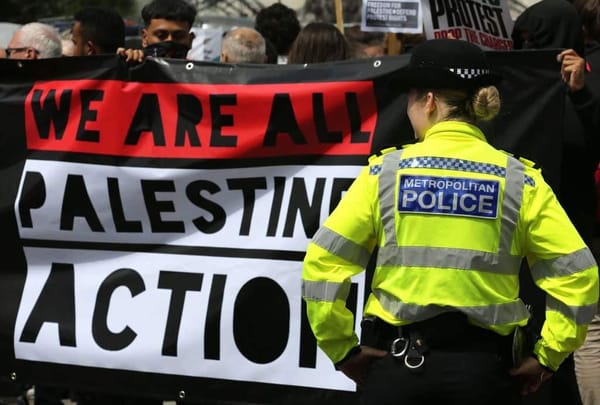A racist anti-racism
A new book probes the bigoted foundations of the "new anti-semitism".

For any anti-racist, Antony Lerman’s latest book does not make for easy reading. Across almost 300 pages of historical research and analysis, Lerman sketches the genesis of the discourse on the “new antisemitism”: in short, the equation of anti-Zionism with antisemitism, and the success with which this redefinition has been used by pro-Israel politicians and academics, hasbara organisations and Jewish communal leaders across the west to shut down legitimate criticism of the state of Israel and the ethno-nationalist ideology that underpins it.
By the book’s end – which brings us to the rather unhappy situation we face today – the reader certainly feels the uphill struggle that anti-racists face. Yet as the author resolves, revealing the bankruptcy of contemporary discourse on the matter “is not just an option but a necessity”. This work is an important contribution to that struggle.
The book begins with two broadly thematic introductory chapters, detailing the Varieties of Confusion in Understandings of Antisemitism, and The Use and Abuse of Antisemitic Stereotypes and Tropes. Lerman draws on a range of recent examples from across the British, American and Israeli academic and political scenes to expose how pervasive the misunderstanding and misappropriation of the concept has become. Particular focus is given to incidents that have occurred since Jeremy Corbyn’s leadership of the Labour party. We are shown how widespread ignorance of what constitutes genuine antisemitism has been exploited by constellation of factional forces in the Labour right, the mainstream media and the reactionary establishment to slander a lifelong anti-racist, along with many Jewish Labour members who deigned to take a critical stance on Israel and Zionism.
The remainder of the text provides a forensic account of the way in which the concept of “new antisemitism” and accompanying myth of Israel as the Jew among the nations have achieved hegemonic status in public discourse. Lerman pinpoints particular phases along this path. The first was characterised by the reaction to the increased criticism of Israel and Zionism in the wake of the Six-Day War, coming to a head with the adoption by the United Nations General Assembly of Resolution 3379 in 1975, which determined that “Zionism is a form of racism and racial discrimination”. This ignited a crisis for pro-Israel advocates across the globe, who sought diplomatic cover for the state and its settler-colonial endeavour to expand its borders. Some commentators described Resolution 3379 as “new antisemitism” or “UN antisemitism”, but as Lerman explains, this push to redefine antisemitism was not widely seized upon by the Israeli state or its apologists, in part because a cornerstone of Zionist ideology had been the consideration that the establishment of a Jewish state would end antisemitism, not encourage it.
The second phase identified in the development of the “new antisemitism” discourse was its consolidation within Jewish institutions across the west throughout the 1990s, as Israel’s international position improved in the aftermath of the collapse of the USSR. Lerman draws on his own intimate involvement with such organisations during this period, in particular the years he spent working at the Institute of Jewish Affairs (IJA) – the research arm of the World Jewish Congress (WJC) – where he started out as a research officer in 1979, then rose to become its director in 1991. After relaunching the IJA as the Institute for Jewish Policy Research (JPR) in 1996, then taking a hiatus in the early 2000s, he resigned in 2009, “convinced that I could only write and speak freely on these subjects [of anti-semitism, Zionism, and Israel] without organisational constraints”. This first-hand experience means Lerman’s account of this period is supplied with unsurpassable detail.
The third era in the rise of the new antisemitism narrative, what Lerman terms the “crucial phase”, began around the turn of the millennium, following the outbreak of the Second Intifada and “apocalyptic warnings” of a dramatic rise in worldwide antisemitism after 9/11. It is from this point that the Israeli government and its state institutions took on a leadership role in the antisemitism fight, having been somewhat inconsistent in its position right up until the mid-2000s. In March 2005, the European Union Monitoring Centre on Racism and Xenophobia (EUMC) codified the equation of critical speech about Israel with anti-semitism in its working definition. This later formed the basis in 2016 of the International Holocaust Remembrance Alliance (IHRA) working definition and the supplementary 11 examples, most of which are concerned with Israel and Zionism. The IHRA definition has since become ubiquitous despite the controversy that has surrounded it from its inception.
Yet, as the author concludes, those who promote the IHRA definition along with the broader notions of new antisemitism and Israel as the collective Jew among the nations are in no way confused when it comes to their own political mission. That is, the neutralisation and enervation of Palestine advocacy and solidarity in an effort to cement the position of a settler-colonial apartheid ethno-state. Fundamental to the ideology that underpins this pursuit is what Lerman diagnoses as a “dangerously narrow version of Jewish particularism”, in which antisemitism is classed as a form of racism sui generis.
Lerman’s achievement is to show how the notion of what constitutes Jewishness, and antisemitism in turn, has changed shape throughout history, constantly being reforged by political forces. For those of us determined to combat antisemitism from a genuinely anti-racist standpoint, whose understanding of Jewishness is incompatible with ethno-nationalism, our task is to nurture ways of being Jewish beyond Zionism.
Any definition of antisemitism that exists primarily to shield the Zionist project will do absolutely nothing to protect Jews across the globe. There has never been a more pressing moment to dismantle the discourse of the new antisemitism; Lerman’s monograph has greatly increased our chances of doing so.▼
Eli Machover is a PhD candidate in politics at the University of Oxford and an editor at Vashti.





